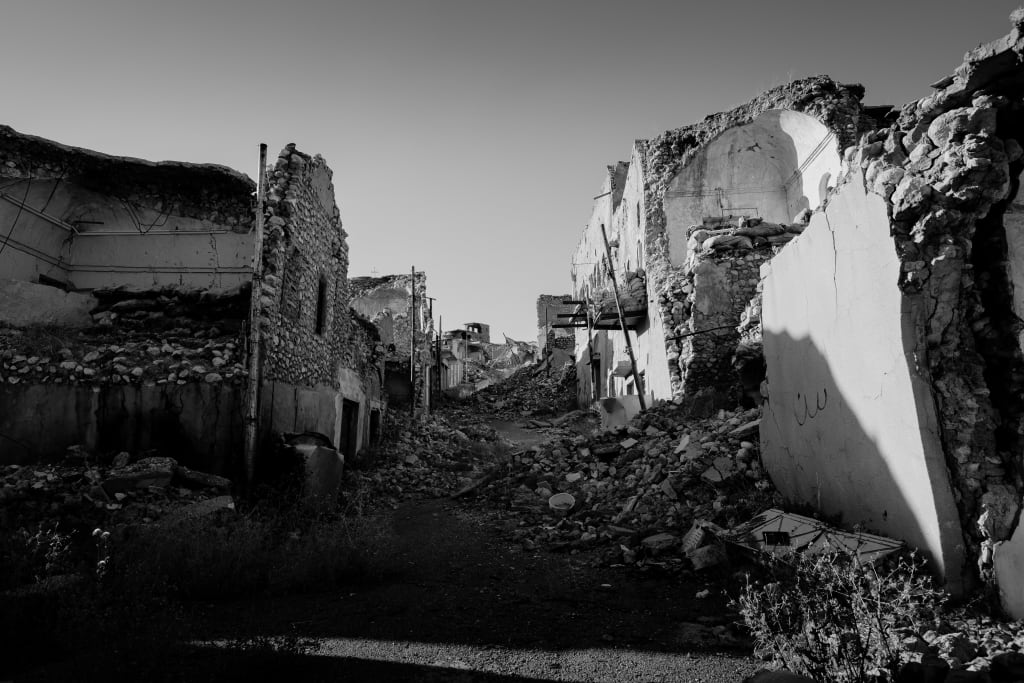
The main purpose of this article is to discuss with readers the meaning of the concept of "justice" itself, and how to make judgments in real life. Among them, the author will mainly answer four questions:
1. Whether justice is "helping friends and hurting enemies".
2. Whether justice is the "interest of the stronger".
3. Whether justice is "naive" and injustice is "shrewd".
4. If others have committed injustice, should we fight back with injustice?
Before we start the discussion, let us make one thing clear: no matter what the definition of "justice" is, it cannot be relative, but must be absolute. If "justice" may be relative, then there will be no justice in everything in the world, and all laws and morals will become meaningless things. And this is obviously unacceptable. Therefore, if any conclusion contradicts the above premises, the conclusion must be rejected. In addition, the author only accepts calm discussions, and does not accept abuse that has nothing to do with the content of this article. If you cannot refute the logic in this article, please do not misinterpret or maliciously extend the meaning of this article.
First of all, many people think that "justice" means helping your friends and hurting your enemies. At this point, we often need to emphasize one point: our friends must be good people, and our enemies must be bad people. Although it is sometimes not always possible to judge accurately in practical situations, for the validity of the whole argument we must first acquiesce that this is true. Because if we hurt good people and help bad people, then we must be unjust.
let's continue. Now our proposition becomes: Justice is "helping the good and hurting the bad." Now, however, let us think: Will a righteous man make a world more just, or less just? I believe that a rational person will answer, and a righteous person will definitely choose to make the world have more justice. So let's examine: If a person is hurt, will he be more just or more unjust? For example, if a dog is beaten, is he more likely to bite you back or swallow it? Obviously, the answer is the latter. Therefore, harming the unjust will only make the world more unjust, and for a righteous person, this needs to be rejected. Even if the purpose is to stop injustice from happening, fighting violence with violence cannot be the answer, as it has been shown that this will only bring more injustice to the world. You think you have subdued violence, but at the same time you have planted more seeds of violence.
In my opinion, only the bourgeoisie who likes to exploit the proletariat will promote the idea that justice is "helping friends and harming enemies", because they want to suppress their enemies through market competition. ideas to achieve their own personal goals.
Second, at the moment, according to the author's observation, many people like to assert that there are only interests but no justice in the world. The so-called justice is only the interests of the strong. History is written by the victors who say what is right and what is right; it is only the outcome that matters. The implication of this is that, although it may be unjust to do so, interests come first. Such people think that their understanding has surpassed other people's "naive" obsession with the concept of justice, as if they have reached the fifth level, but they have actually fallen to the negative level. Now, let us examine the basis for the author's criticism.
Let us first assume the principle that "justice is in the interests of the strong", that is, the interests of the strong can lead to justice. After reflection, we will discover that the real question raised by this proposition is: Does interest outweigh justice? In other words, if justice brings less benefit and injustice brings more benefit, how do we choose?
To answer this question, let's first examine what "the strong" and "the interests of the strong" are. The "strong" seems to be the stronger side relative to the weaker. For example, the victorious country in the war is stronger than the controlled enemy. And his interests are the property and the people he gets. We can therefore say that the "interest of the strong" derives from the object on which he exercises his power. Similarly, the doctor is stronger than the patient; it is obviously just for the doctor to treat the disease, and in order to get his benefit (reward), he must also consider the patient's benefit (treatment). Likewise, it is just for a chef to provide a good meal to his guests, and to take good care of his objects (guests) for his benefit. Therefore, it can be seen that any work of justice can always obtain its own interests by taking the interests of the object (the weak). There is no work that is solely for its own sake, without regard to the interests of any other object. It's like if the doctor doesn't treat the patient, even if he wants to make money, how can he get the benefit? If a chef can't cook delicious meals, how can he make money? If we, like a normal person, regard a proper job or skill as "just", then it can also be concluded that it is impossible for a just person to focus only on his own interests and not the interests of others. Likewise, a just country, whether strong or not, cannot only focus on its own interests without considering the interests of its governing objects. The result of not doing this is to attract the resentment of the people and other countries, and this obviously has a very bad end.
Third, let us now proceed to refute the view that "justice" is naive and that injustice is in the best interest. Let us examine, is justice really a "naive" act? It appears in the fifth paragraph of this article that the purpose of an unjust person seems to be to prevail over all people, both just and other unjust. And a righteous man only wants to be better than other unjust people, not the righteous. To summarize the logic again, the unjust will want to outperform all people, whether they are like or not, and the righteous will only want to outperform the troublemaker, not his likes.
This is like a righteous doctor who only wants to outperform those who spread pseudo-medicine in medical skills, and does not need to outperform other doctors. In the same way, a righteous cop only wants to outsmart the troublemakers, not the other cops. If the above two and similar people are called "knowledgeable people", we can conclude that a knowledgeable person does not want to outperform other knowledgeable people, but simply to outperform other ignorant people. And between knowledgeable people and ignorant people, we usually think that knowledgeable people are wise and ignorant people are stupid. So it can be concluded that a wise person only wants to outsmart the unwise, and will not try to outwit other wise people. On the contrary, only stupid people like to intrigue and focus on their own interests. The righteous are closer to the wise, and the unjust are closer to the stupid. To sum up, it can be concluded that the statement that "justice" is naive and stupid, and "injustice" is shrewd is obviously wrong.
Fourth, and one that is often raised these days: if others have committed injustice before us, can we fight back with injustice? In fact, to some extent, the above argument already includes the answer to the question of whether just people will bring more injustice to the world. The answer is no, so righteous people don't do it. Anyone who has received the most basic elementary education will know that when others make mistakes, it does not mean that you can fight back in a more wrong way, in other words, use violence to defeat violence. Ironically, some people grow up and don't even remember the most basic principles.
Finally, let's go back to the title. Is the initiator of the war of aggression just? The answer must have been self-explanatory. A war of aggression, often "hurting the enemy", brings more injustice to the world, so he is also injustice. So, if he can do more for himself, can it make him righteous? The answer is no, because a war of aggression only takes into account its own interests, not the interests of the target, so it is not just. But some people say, what about injustice, those who believe in justice are innocent and cute. However, we have also shown that the actions of the just are more in line with the wise, and the actions of the unjust are more in line with the stupid. So this statement is not self-defeating. Finally, if others are at fault first, can we overcome violence with violence? Then please note that the title of this article is the initiator of the war of aggression, not the sufferer. As the initiator, your actions must be more excessive and unjust than your opponents. Even if it is a certain way of fighting back, your actions are not equal to your opponent, but more unjust.
To sum up, the initiator of any war of aggression, no matter who it is, is always unjust.





Comments
There are no comments for this story
Be the first to respond and start the conversation.